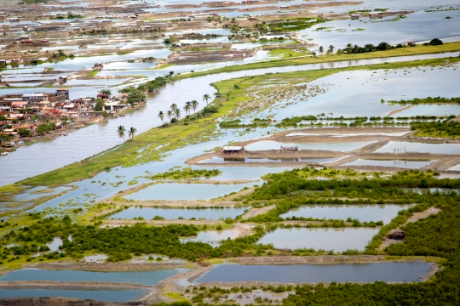Strengthening Community Resilience to Climate Induced Natural Disasters in the Dili to Ainaro Road Development Corridor, Timor Leste
Project Overview
The government of Timor-Leste is currently investing heavily in transport infrastructure as a basis for securing the country’s long-term development goals. These investments are at risk as a result of climate change and therefore require a strategy to ensure their long-term sustenance. The Dili to Ainaro development corridor is one such region that is increasingly at risk from climate change and disaster related impacts including localized flooding, landslides and strong winds. Therefore, this project will focus on the populace dependent on critical economic infrastructure to make it more resilient through prevention and preparedness measures. Consequently, this will help to secure the medium to long-term development benefits of vulnerable local people of this region.
Project Details
(More information to come)
News
'Joint Monitoring Dili to Ainaro Road Development: Strengthening community resilience in municipalities of Ermera, Aileu, Manufahi and Ermera', UNDP Timor-Leste, May 29, 2019.
Key Results and Outputs
The project has three main components with the following associated outcomes –
- Improved climate and disaster risk management is enabled through the establishment of a national training and knowledge hub focusing on climate risk and vulnerability assessment, damage and loss assessment, contingency planning among others (Outcome 1.1) and; the extension of national DRM policy and institutional roles to address climate change and disaster risk reduction measures, including assessment methods etc. (Outcome 1.2).
- Climate and disaster risk planning along with its budgeting and delivery is strengthened including the strengthening of district and sub-district Disaster Management Committees and District Disaster Operation Centres to plan, budget and deliver climate induced disaster prevention financing (Outcome 2.1) and; design of community to district level EWS systems for climate induced extreme events (Outcome 2.2).
- Investments are made in climate resilient community-based adaptation measures including community level climate change vulnerability and risk assessments with a specific focus on gender (Outcome 3.1) and; design and implementation of community level watershed management measures to reduce direct physical impacts of high intensity rainfall events in climate vulnerable hotspots along the Dili to Ainaro development corridor (Outcome 3.2).
Programme Meetings and Workshops
(More information to come)
Reports and Publications
PIFs
Timor Leste – LDCF Project Identification Form (February 2013)
Monitoring and Evaluation
(More information to come)






